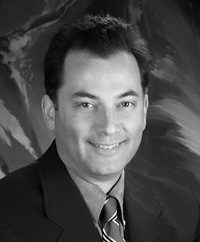I’m a journalist at heart, having grown up in the newspaper industry: delivering newspapers in my youth, working in a circulation department during college, reporting for dailies in Missouri and York, Pa.
Media relations is at the heart of what Goulet Communications does. You can get a pretty good sense of my perspective from this previous post, “6 tips for improving your media relations.”
No. 2 from that post, specifically these two sentences, is particularly relevant to this post: “If you want control, buy an ad. If you want legitimate news coverage, then you’ll have to let the reporter do his job.”
Indeed, the very value of news coverage to a public relations client is in allowing for freedom of the press. Sure, proactive media relations is about shaping a message but also acknowledging that ultimate control rests with the media outlet. That third-party validation is what makes news so much more credible and valuable than paid advertising.
That is the bargain that must be struck, by client and news organization alike. But here’s the flip side to the bargain: the client should be acknowledged for contributing to a story.
Expertise should be acknowledged
As grateful as I am when a newspaper or TV or radio station bites on a story pitch, it’s only worth it if my PR clients derive some benefit. We can’t let our appreciation blind us to the fact that our clients are paying us to be their advocates. When they supply expertise and insight to a news outlet, clients deserve to be acknowledged for it.
That brings me to a recent exchange I had with a TV news producer from outside of Pennsylvania.
I don’t want to mention the individual or TV station by name because A.) I hope to work with them again and, more important, B.) I want to make a larger point.
I will say that it involved live TV appearances featuring my client. Oddly, my client was identified by name in just one of four morning segments. After viewing the segments online, I reached out to the producer to find out whether the omission was an oversight or by design.
The producer wrote back, in part:
“There is no money switching hands here, and we do not have contracts to mention the name any certain amount of times, or location, etc. … Being a news station, we are not contractually tied to our guests, and our only focus is our [sic] viewer benefit, which I thought was great for those segments!
“I’m so sorry if you were under the impression that you had a certain amount of allotted air time for the name, and if that is the case, there is a show we do offer that is sales oriented.”
The producer then steered me to the producer of another show on the station “that is sales oriented.”
‘Disservice to your viewers’
My response:
“You’re absolutely right that this was not an advertisement for [my client]. I was a daily newspaper reporter for nine years, and I am keenly aware and protective of the separation between news and advertising. In fact, it was the subject of my [recent] blog post [I provided a link to this].
“As you know, we put no restrictions or conditions on [your morning program’s] visit to [my client]. … Honestly, my quibble is that the reporter only says where he is in one of the four segments, and I think my client, providing its expertise to the benefit of your viewers, deserved to be recognized for that. That would not compromise your journalistic integrity; to the contrary, it was intellectually dishonest and a disservice to your viewers not to disclose that information.
“Look at it this way: If you were covering a fire at [my client], would you have vaguely referenced [my client] or would you have identified the business by name and location? …
“I am appreciative of your interest in [my client] and in no way would preclude working with you again in the future. But I would only ask that you identify the company. That’s it, and I think that’s only fair.”



